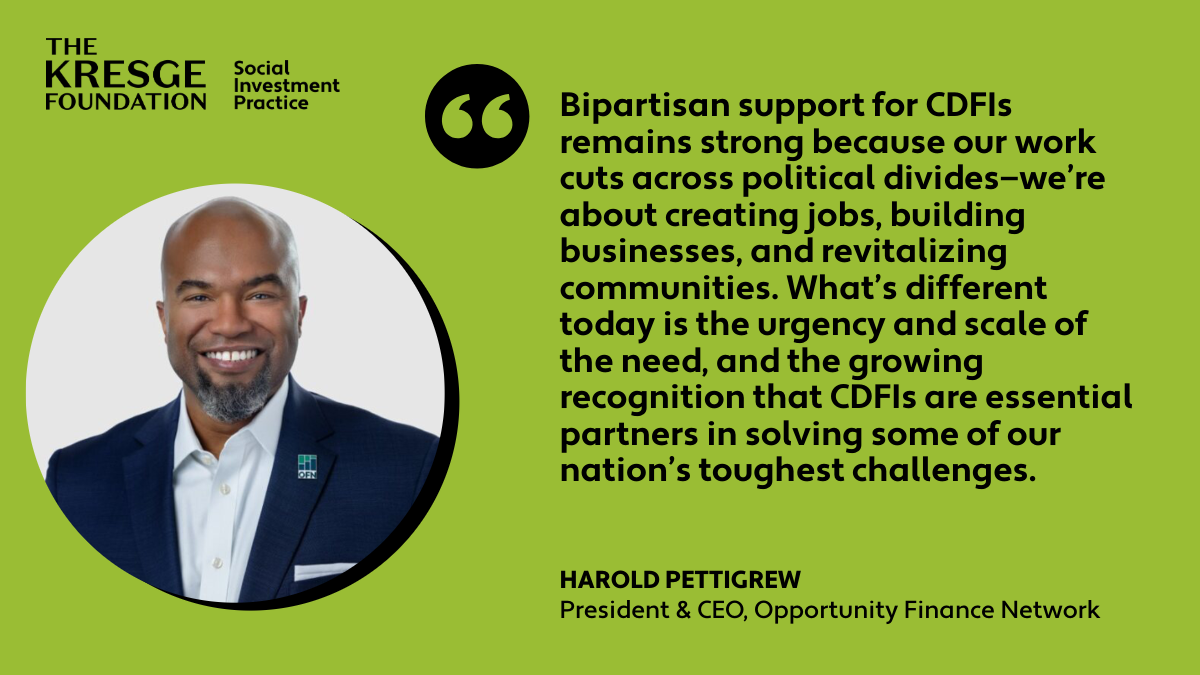Finance
Hiring a financial planner? 3 things they don’t want to hear from new clients.

The first call to a new financial planner is difficult enough for many people, because asking for help often is. Don’t complicate their initial impression of you or future relationship with these opening lines:
1. ‘I retired last month and am trying to figure my financial situation out.’
Like planning and preparing for a career, the more done ahead of time, the smoother the transition into retirement. This is a new chapter, not an end point. Retirement is a major change in lifestyle and income. If and when you are thinking of retirement, the time to consult a financial person is five years before the anticipated date of leaving your job.
Read: Here’s how you can save money on capital-gains taxes when you sell your home
Once you have left a company, there are fewer options for saving or strategizing a successful retirement. It’s better to consider all options while still employed. There are many possibilities around saving, pensions, catch-up contributions, investment withdrawals and housing choices. All of your decisions impact taxes and your Medicare premiums. Think ahead and plan ahead to maximize your retirement income.
Read: There is more to picking a place to retire than low taxes — avoid these 5 expensive mistakes
Samantha had retired and came to me looking for advice. However, at age 60 she was so excited about her ability to retire and claim her pension that she jumped on the opportunity without digging into some important details. The questions she forgot to ask left her retirement finances in jeopardy. Her medical insurance was only partly covered by her former employer – leaving her wanting for medical insurance until she could claim Medicare at age 65. Her options were to live on less or withdraw more from her IRA, or go back to work for an employer that would pay her medical insurance.
She chose to go back to work but because she had already been collecting a pension, she had to look for a job with benefits outside of her company. Just when she thought her time was her own, she was faced with learning new skills, meeting new co-workers, and challenging herself in new professional ways when she would have rather been traveling.
Read: Medicare and HSAs don’t mix — what near-retirees need to know
Although I as much as I wanted to say “too late,” I didn’t, because “better late than never” is also true. Tweaks can be made but some major decisions are unchangeable.
2. ‘My spouse/partner did all the financial stuff and died suddenly. Can you help me?’
Of course, a financial professional can help in the above situation. This becomes like piecing a puzzle together while educating the surviving partner. All of this has to happen at the pace of the grieving partner who is already overwhelmed. Many are not ready to make decisions and instead defer to a CFP, dead spouse’s way of doing things or another friend. They are unprepared to sort through a lifetime of money history and make their own financial choices.
The real issue is how any couple operates while they are both living. Every adult responsible for earnings, spending or investments should know their monthly debt, savings in the bank and investments. All of your and your partner’s financial life may fall in your hands due to death, disability or divorce.
Partnerships create shared responsibilities. Build into the relationship a time to review and understand together – even if one person takes care of the day-to-day details.
Often the person who does not take care of the finances has a sense of what is going on financially – at least they know what they spend and perhaps what the family owns. But they also need to meet the accountant and the investment adviser while understanding the assets and responsibilities of the family.
One couple I worked with divided their financial life. When the wife had a minor stroke and started donating monthly to a charity she had previously given the same amount annually to – the husband never noticed, because, “she has always managed the checkbook.” He wanted her to be back to normal and never considered looking at what she was doing in the past or post-illness.
I heard other stories of once sharp businessmen falling prey to Ponzi schemes, women giving money away or men buying cars when they no longer had a valid license. Be prepared by being in the know.
Don’t have a partner? Be sure your estate plan is up to date, and you leave an easy accessible trail to follow if you are ill. One client sent a sealed envelope to his brother every year who was his executor and financial power of attorney. The brother was ready with the information.
3. ‘I just need an hour of your time.’
A good adviser needs to know a person’s financial and personal life. As a financial professional, insurance, investments, debt, tax, and estate planning are all a part of the review. This takes more than an hour to understand and appreciate where you are financially.
In the interest of saving money today, I understand the desire not to spend much money or time meeting with a financial professional; however, most times a CFP will help you see the full picture and improve your financial situation.
Some financial do-it-yourselfers cannot see their own blind spots. Many are great at investments but may have overlooked their estate planning. Or without a deep understanding of their tax situation they end up paying so much more each year in taxes. Financial planners can not only help you save money, but also be sure you are spending your money more effectively. So, the cost of more than one session may actually save you money.
Read: Can I afford to retire? Not before you know the answer to this big question
On rare occasions, there are not many meetings involved. One client, Maura, stands out who was so well organized and had done her research that after two meetings, I could say “Come back in a couple of years or if anything major changes.” She had done her legwork and did not have a complex situation or many assets.
After decades of learning financial planning and studying and understanding people and legal changes, that simple opening can be bothersome. The words display a lack of understanding of the work we do. Think of calling a dentist and saying “I just need one cleaning and one dental overview – I have been brushing my teeth for years.” There is more to finances and health.
In all of these situations, financial professionals can help you. Just remember, to take care of yourself now and understand we have made a career learning the financial world so we can help you.
CD Moriarty is a Certified Financial Planner, a MarketWatch contributor and a personal-finance speaker. She blogs at MoneyPeace.

Finance
Dividend Stability and Regional Strength: The Case for Truist Financial (TFC)

Truist Financial Corporation (NYSE:TFC) is included among the 11 Best Bank Dividend Stocks to Buy.
Photo by Annie Spratt on Unsplash
Truist Financial Corporation (NYSE:TFC) is a prominent American commercial bank with a strong footprint in the Southeast and Mid-Atlantic regions. Ranking among the top ten banks in the country, it enjoys a solid market position in high-growth states like Florida and Georgia. Recently, the bank has prioritized digital innovation and technology development to improve service delivery and remain competitive against fintech firms.
Regulatory compliance remains a key focus for Truist Financial Corporation (NYSE:TFC), as it operates under enhanced prudential standards and capital requirements as a Category III banking organization. Adhering to these standards is essential for sustaining its operations and long-term strategies. At the same time, Truist’s disciplined approach to capital management allows it to maintain financial stability while pursuing strategic growth opportunities, including potential mergers and acquisitions.
Truist Financial Corporation (NYSE:TFC) is also popular among investors because of its dividend policy. The company has been making regular payments to shareholders since 1997. Currently, it offers a quarterly dividend of $0.52 per share and has a dividend yield of 4.53%, as of September 24.
While we acknowledge the potential of TFC as an investment, we believe certain AI stocks offer greater upside potential and carry less downside risk. If you’re looking for an extremely undervalued AI stock that also stands to benefit significantly from Trump-era tariffs and the onshoring trend, see our free report on the best short-term AI stock.
EAD NEXT: 12 Best Stocks to Buy Now for Passive Income and 12 Best Retail Dividend Stocks to Buy Now
Disclosure: None.
Finance
Financing opportunity: Q&A with Harold Pettigrew on the future of the CDFI Sector – Kresge Foundation

As the community finance field enters a new era—shaped by economic uncertainty, shifting capital flows, and growing calls for accountability—how can CDFIs prepare for what’s ahead? The Kresge Foundation spoke with Harold Pettigrew, the president and CEO of the Opportunity Finance Network (OFN) to help answer that question. This article is part of a series highlighting the impact of CDFIs and how the sector is adapting to the current environment.
MD: CDFIs play a unique role in our financial ecosystem, often serving communities that mainstream banks overlook. Why are CDFIs so critical for advancing economic growth and creating opportunities in underserved communities?
HP: In every corner of America, CDFIs show that impact and financial performance aren’t at odds—they reinforce each other. We address market gaps and go where traditional capital doesn’t: listening first, solving for need, and providing capital to people and financing projects that strengthen families and communities. Whether it’s a small business on Main Street or a housing development in a rural town, CDFIs make investments that build wealth and create opportunities that reach people and communities that need it most.
MD: CDFIs seem to have broad support in Congress, even when some administrations have looked to reduce funding or support. Is bipartisan support materially different today? What role has OFN played in telling the CDFI story and maintaining that support?
HP: Bipartisan support for CDFIs remains strong because our work cuts across political divides — we’re about creating jobs, building businesses and revitalizing communities. What’s different today is the urgency and scale of the need, and the growing recognition that CDFIs are essential partners in solving some of our nation’s toughest challenges. OFN and CDFIs tell real stories of impact—stories of people across the country whose lives and livelihoods have changed thanks to the capital provided by CDFIs. Through advocacy, research, and direct engagement with policymakers, we’ve elevated a clear, consistent message: For over 30 years, CDFIs have delivered results addressing market gaps in providing access to capital to communities across the country.
MD: Beyond federal funding concerns, what are the current challenges and needs CDFIs are facing in their day-to-day efforts to support communities?
HP: CDFIs are navigating a complex economic environment— rising interest rates, tighter capital markets, and growing community needs are stretching our resources like never before. Many CDFIs are being asked to do more with less, while also investing in their own operations to scale effectively and sustainably. OFN is working to develop diverse pools of flexible capital, make deeper investments in talent and technology, and new policy frameworks that support and recognize the unique value CDFIs bring. The demand is clear — what’s needed now is bold investments to meet the moment and craft new solutions for the future.
MD: Philanthropies and community development departments of banks and insurance companies have always been crucial partners for CDFIs — how can they best support and invest in CDFIs right now?
HP: Our partners in philanthropy and financial services have been critical to the success of CDFIs, and now they have a critical opportunity to strengthen the CDFI industry for the future. That means moving beyond transactional grantmaking to long-term, trust-based partnerships. It means offering flexible, risk-tolerant capital that lets CDFIs innovate and expand, and it means investing in the infrastructure — people, systems, data — that helps us operate at scale.
MD: What keeps you optimistic about the future of the CDFI sector?
HP: What keeps me optimistic is the impact and commitment I see every day, from the entrepreneurs we finance, to the communities we serve, to the CDFI leaders innovating with courage and conviction. The sector is growing, diversifying and deepening its impact. We’re not just responding to the moment — we’re helping define the future of expanded access to finance and financial services. And with every new loan, every new partnership, every life changed, we’re proving that when we expand access to opportunity — we don’t just finance projects, we shape the future of communities across the country.
Harold Pettigrew is the President and CEO of Opportunity Finance Network (OFN)
Finance
Reimagining Finance: Derek Kudsee on Coda’s AI-Powered Future

Derek Kudsee is a veteran of the enterprise software industry, with senior leadership roles at industry giants such as SAP, Salesforce, and Microsoft under his belt. So, when he took the helm as the new Managing Director for Unit4 Financials by Coda, ERP Today sat down with Kudsee to discuss his vision for Coda, the promise of agentic AI to make work feel lighter for finance teams, and his mission to transform the classic system of record into a dynamic system of intelligence for the Office of the CFO.
What was it about the opportunity at Unit4, and specifically the challenge of modernizing Coda, that convinced you to take this role?
A rare combination of having a deeply trusted platform and a clear opportunity to reimagine the finance function drew me to Unit4, and specifically the Coda business. Some of the largest enterprise customers have been running on this platform for decades. I’ve been brought in to help these finance teams run more efficiently and provide greater insight through agent-driven automation. We live in a world where technology has converged in our consumer and professional lives. Therefore, modernization is not only about addressing complex systems, but also about enhancing the user experience. This combination of running a deeply trusted platform, reimagining its capabilities in an AI-driven world, and modernizing the user experience was attractive.
Unit4 Financials by Coda’s goal is to deliver an “AI-fueled office for the CFO” using agentic AI. How will a finance team using Coda experience this in their day-to-day work?
When one thinks of an AI-fueled Office of the CFO, it’s about having agents deep inside those finance processes that will suggest, explain, and act within guardrails that finance teams can set. The work should feel like the machine is performing tasks that were previously done manually or laboriously.
A simple example is in an accounts payable department. An agent can automate everything from invoice capture using AI-driven OCR, verify that the invoices are within policy, queue them for approval, send them to the respective individuals, and flag exceptions along the way. Users can see how the work feels lighter because the machine handles everything from capture to the final stage, including payment release.
How do the AI functionalities offered by Coda differ from what competitors are offering right now?
Many vendors today have a finance module. However, we aim to be the best standalone financial management system, not a generic suite. We’re not trying to be finance because we want to sell an HR or CRM system. That means we need to embed intelligence deeply within the finance processes so that the software acts, takes action, and performs activities for the finance function. For that, the agentic AI needs to operate with autonomy, understand financial context, and learn from user behavior.
Moreover, fundamentally, Coda has always been built on a unified financial model. We’ve never had Accounts Payable separate from Accounts Receivable that needed to be consolidated. Our AI works on clean, structured data from day one, and that’s the foundation for accuracy. We don’t need to chase hype to incorporate AI. We’re going to redefine the finance function with AI at its core.
How do you plan to balance the introduction of these cutting-edge innovations without disrupting the core stability that Coda is known for?
The safest way to modernize finance is to add certainty around the core, rather than disrupting it. Our core is why customers have been running Coda for 20-30 years. Thus, stability is not a nice-to-have; it’s non-negotiable. Our customers run mission-critical processes, and that trust is sacred to us. Therefore, every innovation we deliver, whether it’s UX modernization or AI, will be built on one simple principle: if it compromises stability, we don’t build it. We don’t ship it.
With that rock-solid foundation in place, we can layer intelligence and usability on top. While some software providers are still determining the stability of their platform, we can offer customers the best of both worlds. They’ll have the reliability they’ve counted on for decades, and now we bring them the innovation they need to stay ahead.
What This Means for ERP Insiders
Your biggest enemy is decision latency. According to Kudsee, the primary challenge for modern finance is the gap between a business event occurring and the ability to respond intelligently. This decision latency, caused by fragmented data, batch processes, and manual workarounds that are standard in traditional ERP environments, prevents finance from being a proactive and strategic partner. Coda’s goal is to shrink that gap from weeks or days to near-real-time.
Shift the ERP mindset from system of record to system of intelligence. For decades, the primary function of ERP finance modules has been to record transactions accurately. This is no longer sufficient, as Kudsee notes. A modern financial platform must function as a system of intelligence that not only records data but also analyzes, predicts, and automates actions within core financial processes, effectively acting as the intelligent brain of the CFO’s office.
Prioritize financial depth over suite breadth. Kudsee suggests that the single ERP for everything strategy can result in a finance module that is a jack-of-all-trades but master of none. The alternative approach is to prioritize depth and best-in-class functionality for the critical finance function. Instead of settling for the generic finance module within a larger suite, consider how a dedicated platform like Unit4 Financials for Coda, focused on deep financial control, insight, and automation, can deliver more agility and tackle core challenges, such as decision latency, more effectively.
-

 Finance7 days ago
Finance7 days agoReimagining Finance: Derek Kudsee on Coda’s AI-Powered Future
-

 World6 days ago
World6 days agoSyria’s new president takes center stage at UNGA as concerns linger over terrorist past
-
North Dakota7 days ago
Board approves Brent Sanford as new ‘commissioner’ of North Dakota University System
-

 Technology6 days ago
Technology6 days agoThese earbuds include a tiny wired microphone you can hold
-

 Culture6 days ago
Culture6 days agoTest Your Memory of These Classic Books for Young Readers
-

 Crypto6 days ago
Crypto6 days agoTexas brothers charged in cryptocurrency kidnapping, robbery in MN
-

 Crypto7 days ago
Crypto7 days agoEU Enforcers Arrest 5 Over €100M Cryptocurrency Scam – Law360
-

 Rhode Island7 days ago
Rhode Island7 days agoThe Ocean State’s Bond With Robert Redford




















